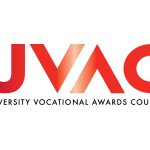UVAC is committed to supporting its members and the wider apprenticeship sector to develop and grow higher and degree apprenticeships and to respond to the government’s degree apprenticeship growth calls. Which is why we are providing very practical long-term support through our involvement in the Apprenticeship Workforce Development (AWD) programme. Funded by the Department for Education (DfE), the AWD programme is being delivered by the Education and Training Foundation in partnership with the Association of Colleges (AoC), Association of Employment and Learning Providers (AELP), Strategic Development Network (SDN) all working with UVAC to address some of the challenges to achieving quality in delivery.
UVAC argues for greater integration of sustainable development into apprenticeship policy and practice and specifically in relation to creating inclusive workplaces, facilitating social mobility, taking a balanced approach to productivity, health and well-being and embedding educational approaches and methods which promote greater equality in the world of work. It is possible for the AWD programme to look at the interesting aspects of the big, ‘sustainability in further education (FE), higher education (HE) and skills’ question-focused inquiries and call for a raising of the stakes in sustainable development of apprenticeships when designed and developed by the provider with the involvement of employers.
Indeed, against a backdrop of broad political changes and turmoil, Westminster Government has forged ahead with educational and skills reform in England which is shaking up a national picture with a view to generate longer term growth. Yet there is growing evidence of concern for a sustainable form of development in this landscape, indicated by outrage with a potential regression in human rights and equality following the retreat from the European Union, or a concern for equalities in the educational supply chain. We are making a ‘call’ or appeal to the audience of ‘stakeholders’ which includes colleges, independent training providers (ITPs), higher education institutions (HEIs) and workplaces to raise the game of sustainability and sustainable development in the policy and practice sphere of apprenticeships and skills.
What makes sense to UVAC is that the United Nations’ sustainable development goals (SDGs) are a useful tool for introducing the themes of education for sustainable development. By utilising the 17 SDGs (United Nations, 2017) as a discursive framework it is possible to promote ways to further integrate notions of responsibility and sustainability into apprenticeship workplace learning programmes, through innovation in pedagogical practices and by discussing them in reference to the contemporary policy landscape and sustainable forms of development. When considering the broader sustainability context in relation to the global 2030 agenda there is a need for not only policy makers but practitioners and leaders too to respond to contemporary challenges in relation to the apprenticeship system which is being subject to and framed against a background of continuing reform.
Where practitioners are concerned with developing their own and others’ practice there are implications for on-going and sustained development. Embedding sustainability and sustainable development in the curriculum as an inherently crucial dimension of what it means to be a ‘professional’, being ‘fully competent’ and to contribute to society. In relation to the apprenticeship levy, although the currently bounded freedom of organisations is valued in terms of training and development expenditure, could certain sustainability learning or outcomes be valued more than others? These are matters which practitioners may wish to consider.
By reviewing the SDGs as an instance of discourse apprenticeship development across themes and institutional boundaries: between FE, HE and ITPs (including new types of institutions); between practical training and academic learning; between new and old methodologies of reflective practice and pedagogy; between different levels and types of qualification; between different quality regimes and systems of funding; between matters of productivity, skills, social mobility and widening participation, we can view it from new perspectives.
In our view, the future for the widest possible engagement in apprenticeships and the technical and professional skills system by all provider types and sizes is positive if Westminster Government ensures the employer remains central to developments, and they are unhindered in deciding where to invest in workforce development. If Government commits to the apprenticeship reforms as intended, further and higher education institutions can continue to play a pivotal role in ensuring apprenticeships open-up and support progression to professional and more highly paid occupations to those who have not had such opportunities before. Only then can the two main drivers of apprenticeships—raising productivity and enhancing social mobility—be realised. Signposting to sustainability learning content and emerging pedagogical perspectives including in areas of social innovation and social change work can only be a good thing. Nevertheless, we still need to do more to raise the game on integrating sustainability and sustainable development into the vocational and educational landscapes across England to take leaps in creating sustainable futures for all involved (as well as those not yet involved). We know, and you know, it makes good sense too.

4 days ago, Samuel Taylor

14 days ago, Samuel Taylor
NEWS BY CATEGORY
Please enter your details below –
